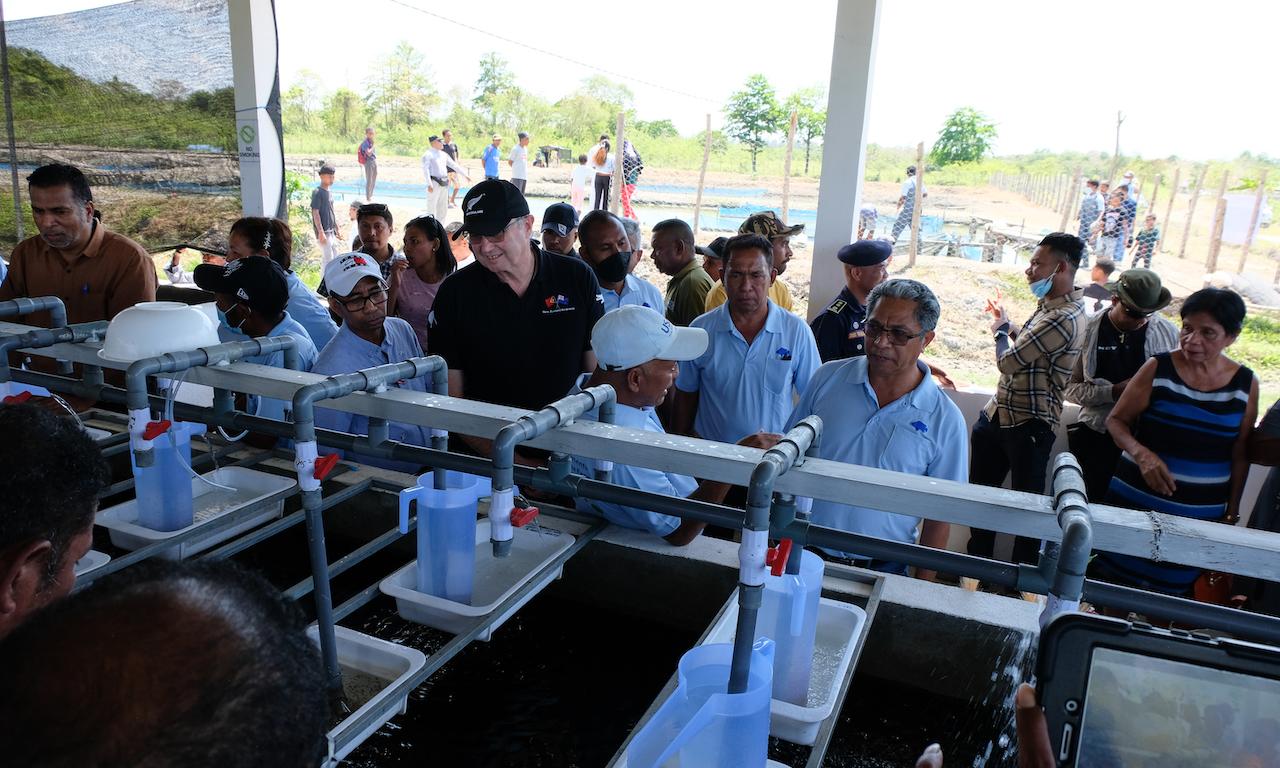
- The fourth private Genetically Improved Farmed Tilapia (GIFT) has opened on the south coast of Timor Leste.
- The openeing of the hatchery contributes to realising the goals of the Timor-Leste's National Aquaculture Development Strategy (2012-2030), which includes increasing annual farmed fish production to 12,000 tons by 2030 and supporting an increase in annual fish consumption to 12 kg per year.
- By 2030, Timor-Leste will need around 35 million GIFT fingerlings annually. The new hatchery will play a significant role in the scaling of GIFT on the south coast.
The fourth private genetically improved farmed tilapia (GIFT) hatchery has opened on the south coast of Timor-Leste, marking another step in the country’s aquaculture development.
The hatchery was inaugurated on Friday 29 September 2023 by Marcus da Cruz, Minister of Agriculture, Livestock, Fisheries, and Forestry, and Philip Hewitt, New Zealand Ambassador to Timor-Leste.
“The Colocau GIFT hatchery is expected to produce more than five million GIFT monosex GIFT fingerlings per year, which will be supplied to local fish farmers in Manufahi and nearby municipalities,” said Mr. Hewitt at the event.
“This will have great advantages for the aquaculture sector, enabling fish farmers to produce more farmed tilapia, and thereby making it easier for consumers to access fresh fish in the future. This will help combat malnutrition among children in Timor-Leste.”
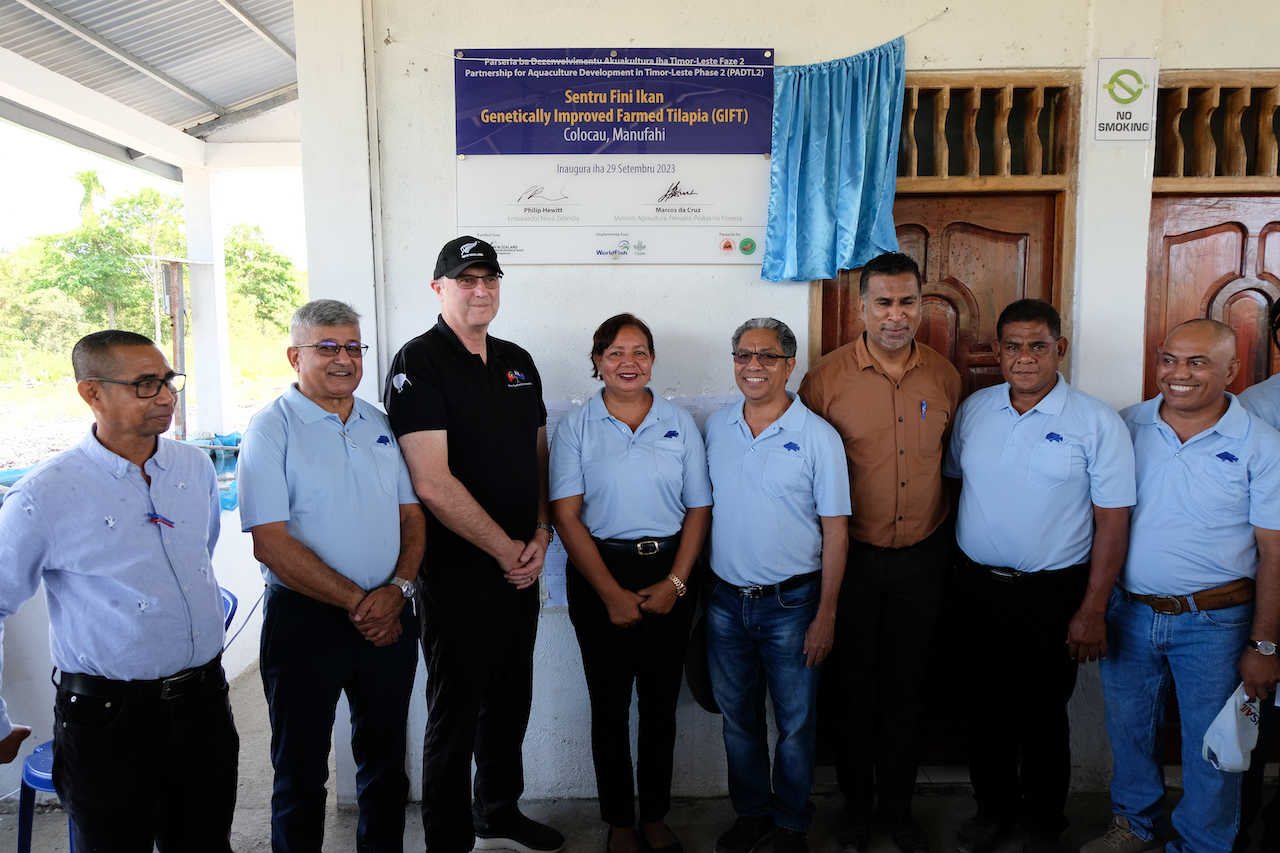
More than 100 guests attended the inauguration event, including the Secretary of State for Fisheries, the Manufahi Administrator, representatives from the public and private sectors, and community members.
The Colocau GIFT hatchery was established in partnership with the Same Construction business, the hatchery owner, as part of the Partnership for Aquaculture Development in Timor-Leste Phase 2 (PADTL2) project (2020-2024).
The project is funded by the New Zealand Ministry of Foreign Affairs and Trade and led by WorldFish in partnership with the Timor-Leste Ministry of Agriculture, Livestock, Forestry and Fisheries (MALFF).
The Timor-Leste Government is committed to scaling aquaculture to enhance the livelihoods and nutrition and food security of rural households, explained Marcus da Cruz at the event.
“We need food, meat and fish in our lives. We need private sectors, youth and others to be involved in agriculture to increase production and improve the quality,” he said.
“This [hatchery] activity, through WorldFish, is a good model that needs to expand to the other municipalities.”
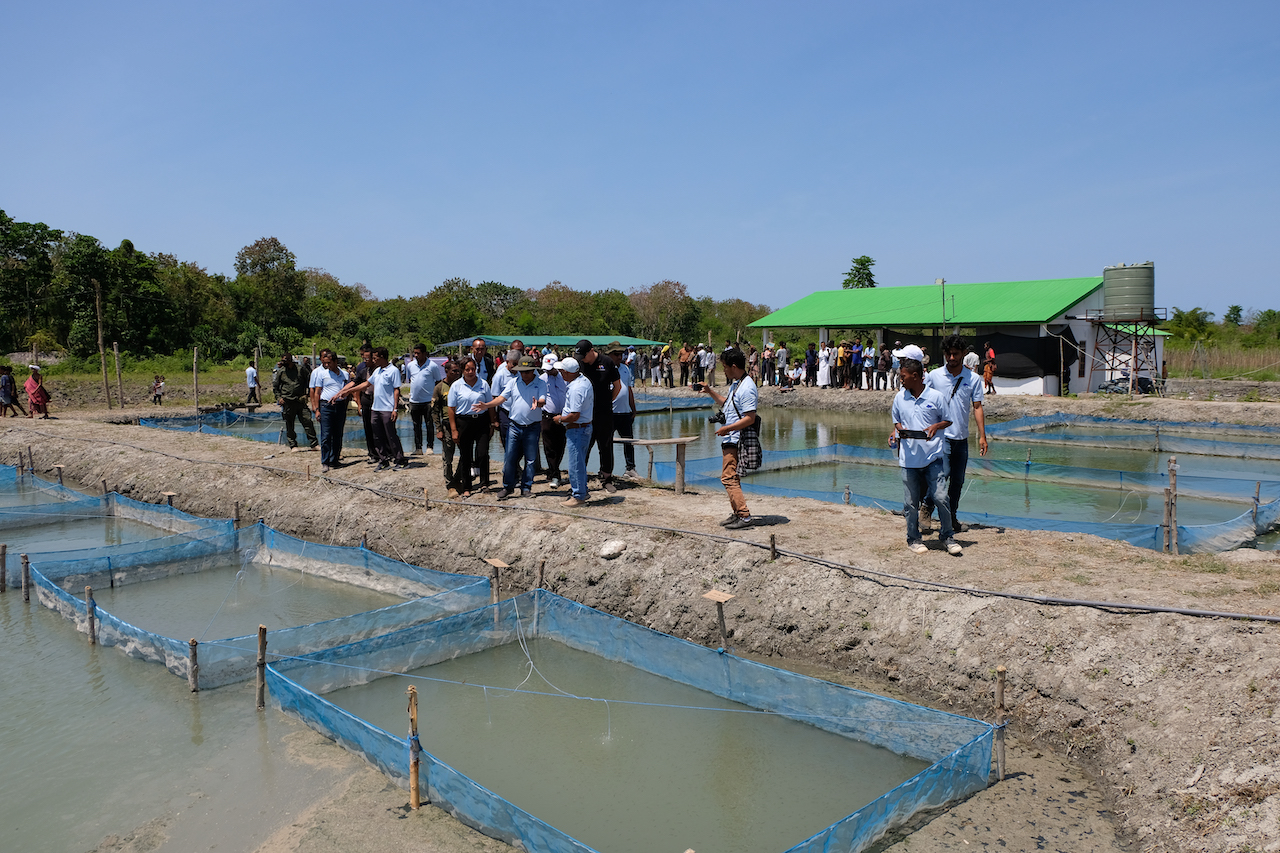
Fourth private GIFT hatchery
The Colocau GIFT hatchery is the fourth if its kind to be set up by the PADTL2 project. The other hatcheries are in spread across the country’s west, east and centre-Leohitu (Bobonaro municipality), Parlamento (Lautem municipality), and Hera (Dili municipality).
These hatcheries are supported by the government hatchery at Gleno, Ermera, which was established in 2015 by phase one of the project (2014-2019) to maintain the genetic quality of GIFT and provide high-quality broodfish to the private GIFT hatcheries.
These efforts are critical to realising the goals of the National Aquaculture Development Strategy (2012-2030), including increasing annual farmed fish production to 12,000 tons by 2030 and supporting an increase in annual fish consumption to 12 kg per year.
The Colocau hatchery will be operated by four staff, who will receive technical support from the government and WorldFish.
“We started producing fingerlings in June 2023,” said owner Edviges Izaac Fatima at the event.
“We’ve already sold more than 65,000 fingerlings and distributed them to Manufahi, Manatuto and Ainaro municipalities.
“We want to continue producing seed and have asked farmers around here to start getting involved in fish farming,” she said.
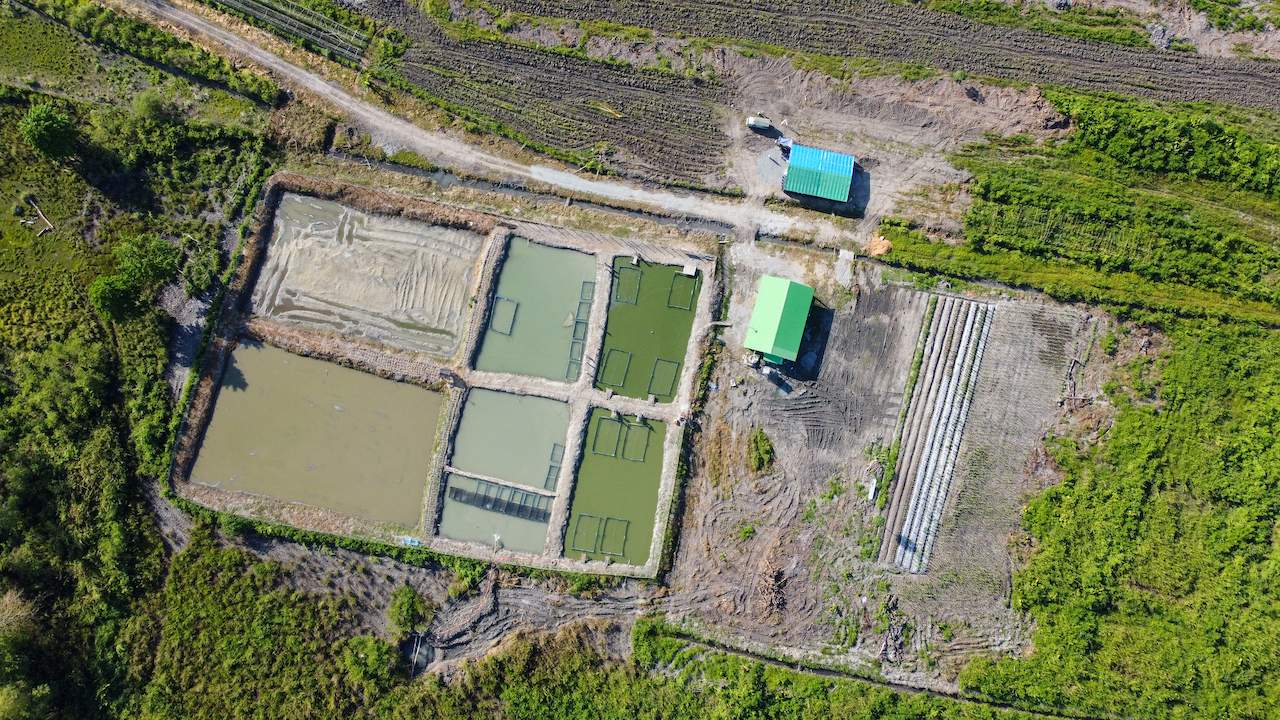
A seed quality accreditation system
By 2030, it is estimated that Timor-Leste will require around 35 million GIFT fingerlings annually. The Colocau hatchery will play a significant role in the scaling of GIFT on the south coast.
WorldFish is planning to work with MALFF to introduce a GIFT seed quality accreditation system in Timor-Leste, explained Dr. Jharendu Pant, PADTL2 project leader, WorldFish.
“The GIFT hatcheries’ performance will be assessed at least twice per year based on total seed production (eggs, fry, fingerlings), quality of seed (% male), and compliance with the Better Management Practices Guidelines,” he said at the event.
“The best-performing hatcheries will be presented with quality accreditation certificates, and poor performers will be encouraged to improve their performances.”
The accreditation system supports the PADTL2 project’s goals to scale up GIFT production to increase the availability, accessibility, and consumption of fish.
“Fish is one of the most nutritious foods packed with protein and various micronutrients. Inclusion of fish in the regular diet can play significant role in improving food and nutrition security,” said Dr. Jharendu.
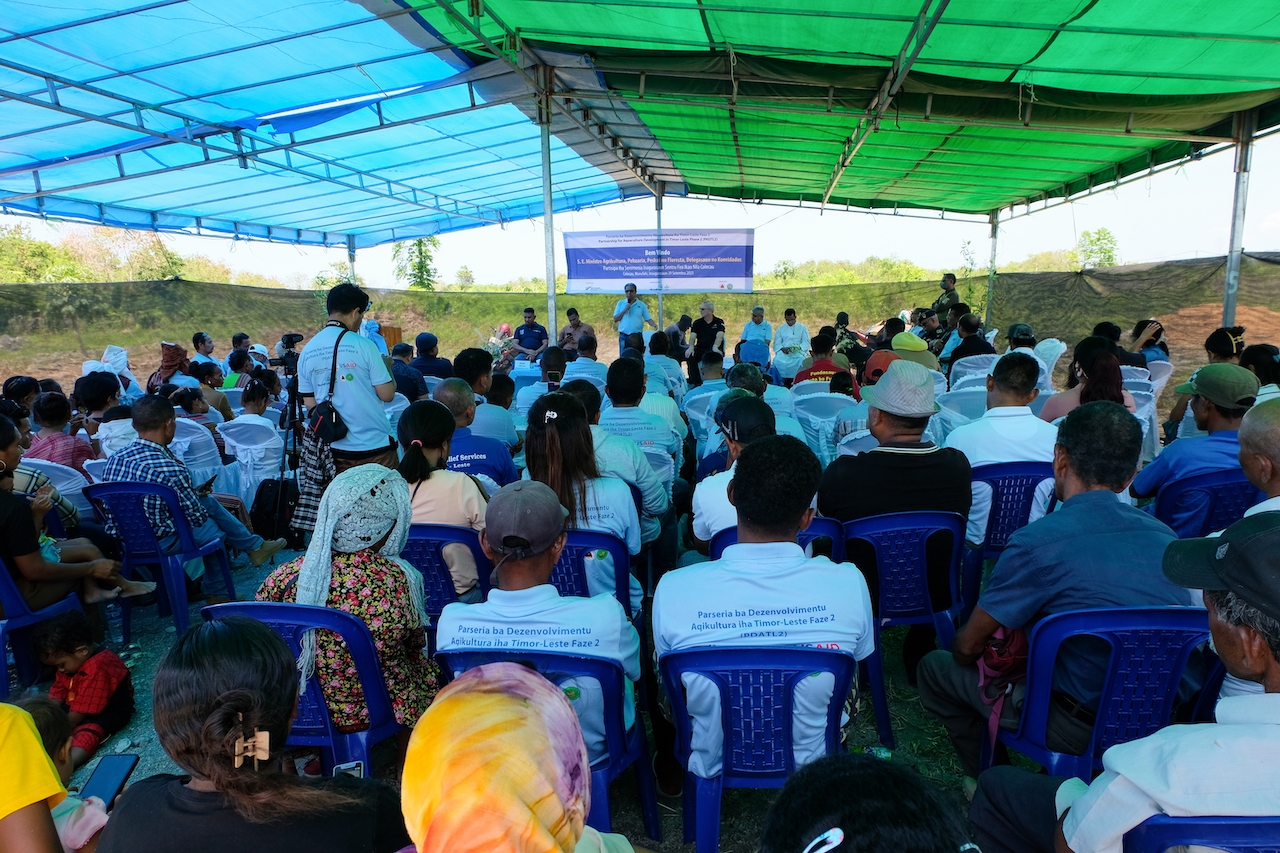
Related publications:
- Timor-Leste’s aquaculture sector progresses with third tilapia hatchery inauguration: https://worldfishcenter.org/blog/timor-lestes-aquaculture-sector-progresses-third-tilapia-hatchery-inauguration
- Better management practices for monosex tilapia production: An illustrated guide: https://digitalarchive.worldfishcenter.org/handle/20.500.12348/4314
